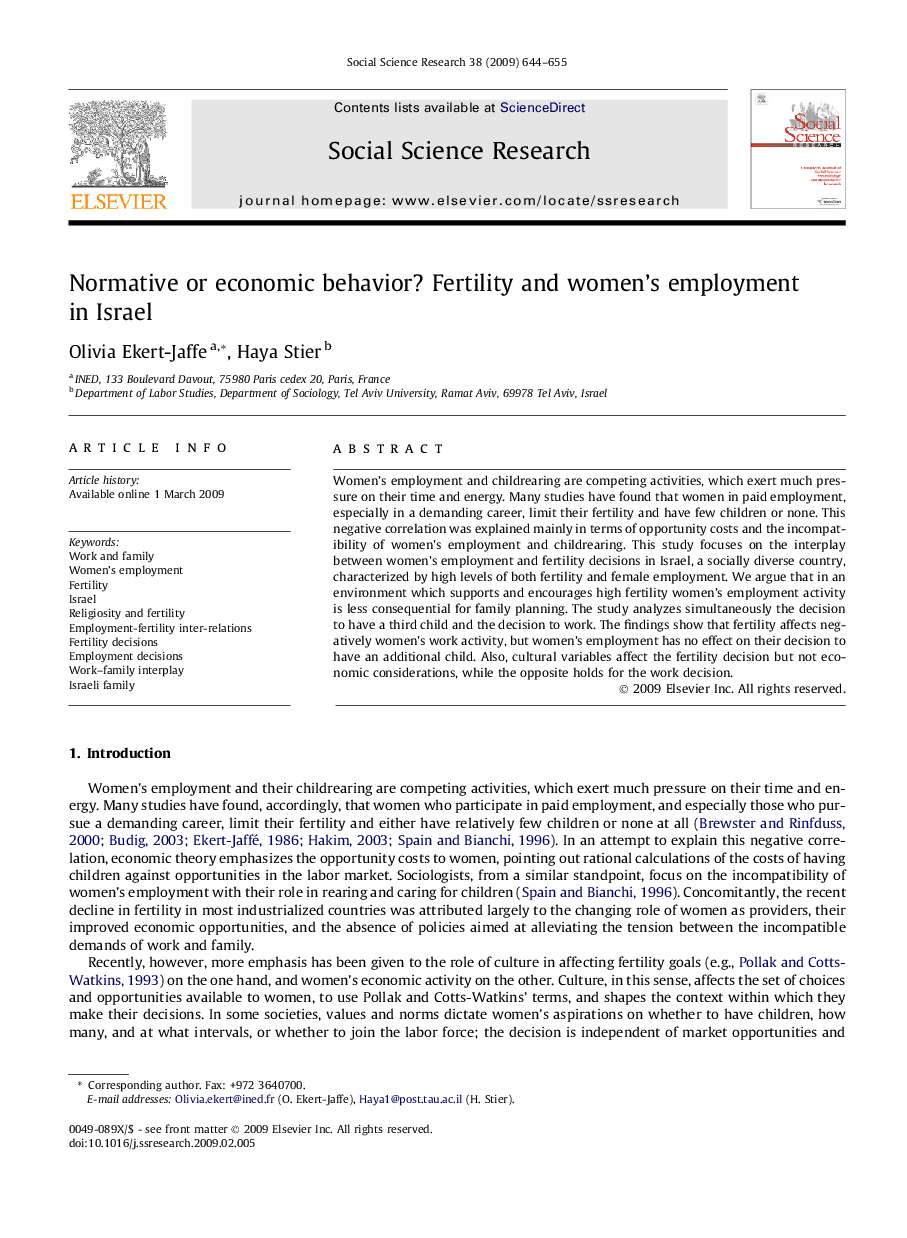| Article ID | Journal | Published Year | Pages | File Type |
|---|---|---|---|---|
| 956399 | Social Science Research | 2009 | 12 Pages |
Women’s employment and childrearing are competing activities, which exert much pressure on their time and energy. Many studies have found that women in paid employment, especially in a demanding career, limit their fertility and have few children or none. This negative correlation was explained mainly in terms of opportunity costs and the incompatibility of women’s employment and childrearing. This study focuses on the interplay between women’s employment and fertility decisions in Israel, a socially diverse country, characterized by high levels of both fertility and female employment. We argue that in an environment which supports and encourages high fertility women’s employment activity is less consequential for family planning. The study analyzes simultaneously the decision to have a third child and the decision to work. The findings show that fertility affects negatively women’s work activity, but women’s employment has no effect on their decision to have an additional child. Also, cultural variables affect the fertility decision but not economic considerations, while the opposite holds for the work decision.
